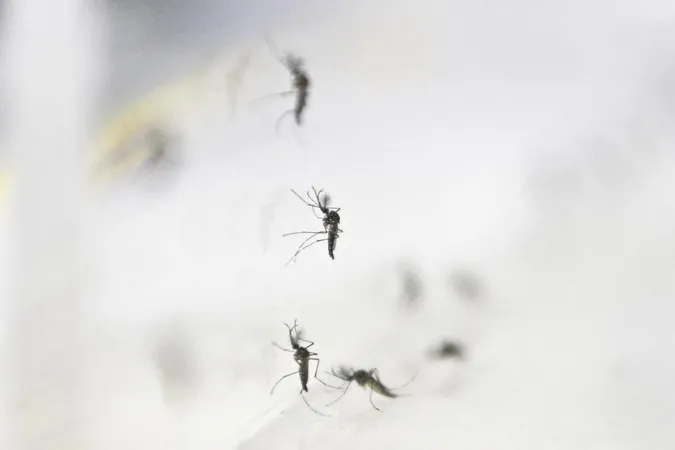
Chikungunya Infection Surge: Should Singaporeans Be Alarmed?
2025-08-24
Author: Siti
The Chikungunya Alarm: Rising Cases in Singapore
SINGAPORE – Health officials are sounding the alarm as chikungunya infections soar in the Republic. As of August 16, 2025, reported cases have already surpassed the entire total from 2024, with 21 infections documented compared to just 10 during the same timeframe last year.
But Singapore isn't alone—globally, outbreaks are escalating, with over 240,000 cases reported by the European Centre for Disease Prevention and Control (ECDC). What’s causing this alarming trend, and should residents be worried?
Understanding Chikungunya: Symptoms and Risks
Chikungunya is a viral disease characterized by high fever and debilitating muscle and joint pain. Transmitted primarily by the Aedes albopictus and Aedes aegypti mosquito species—also known for spreading dengue and Zika—there's currently no specific treatment for this illness.
While chikungunya has a lower mortality rate than dengue, its painful symptoms can be particularly debilitating, notably for the elderly. Factors contributing to the disease's spread include local mosquito populations and the importation of the virus by travelers.
Climate Change: A Catalyst for Outbreaks?
Health authorities are also pointing to climate change as a driving force behind recent spikes in chikungunya across the Americas, Asia, and Europe. The ECDC reports that rising temperatures and elongated summer seasons are lengthening transmission seasons for mosquito-borne diseases.
Additionally, virological factors could play a role, suggests Professor Paul Tambyah, former president of the International Society for Infectious Diseases. He references a study pointing to new viral strains linked to recent outbreaks on Reunion Island, which reported 47,500 cases, infecting around 5% of its population.
Potential for Concurrent Outbreaks: Chikungunya and Dengue?
Despite the rising chikungunya cases, Prof. Tambyah emphasizes that Singapore's total for 2025 is still lower than daily dengue case counts from last year. While dengue has decreased, caution remains as the country could face outbreaks of both diseases in the near future, with more significant risks anticipated next year.
Preventative Measures: What’s Being Done in Singapore?
To combat the surge, health authorities recommend that residents take precautions against mosquito bites, such as wearing long sleeves and using insect repellents containing DEET or IR3535. Project Wolbachia, an initiative to control mosquito populations, is being expanded, though its effects on chikungunya remain uncertain.
Currently, there are two chikungunya vaccines available abroad, but neither is accessible in Singapore due to safety concerns. One, Ixchiq, is a live-attenuated vaccine, and another, Vimkunya, uses a mimic molecule to trigger an immune response. Authorities may be waiting for further data before making these vaccines available.
Conclusion: Stay Vigilant!
As chikungunya cases rise, prevention remains paramount. Health officials maintain that the most effective strategy to avoid this debilitating disease is to prevent mosquito bites. Singaporeans are urged to stay informed and prepared as the situation evolves.




 Brasil (PT)
Brasil (PT)
 Canada (EN)
Canada (EN)
 Chile (ES)
Chile (ES)
 Česko (CS)
Česko (CS)
 대한민국 (KO)
대한민국 (KO)
 España (ES)
España (ES)
 France (FR)
France (FR)
 Hong Kong (EN)
Hong Kong (EN)
 Italia (IT)
Italia (IT)
 日本 (JA)
日本 (JA)
 Magyarország (HU)
Magyarország (HU)
 Norge (NO)
Norge (NO)
 Polska (PL)
Polska (PL)
 Schweiz (DE)
Schweiz (DE)
 Singapore (EN)
Singapore (EN)
 Sverige (SV)
Sverige (SV)
 Suomi (FI)
Suomi (FI)
 Türkiye (TR)
Türkiye (TR)
 الإمارات العربية المتحدة (AR)
الإمارات العربية المتحدة (AR)